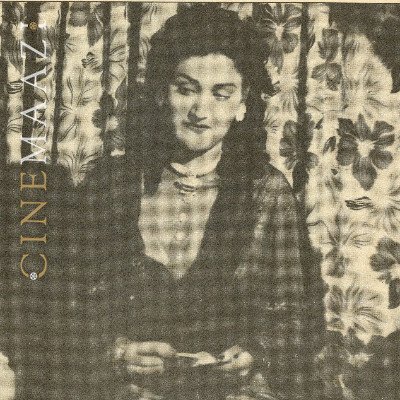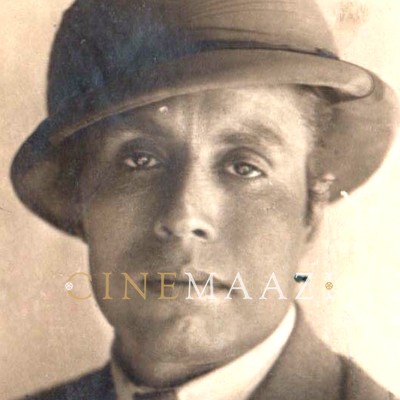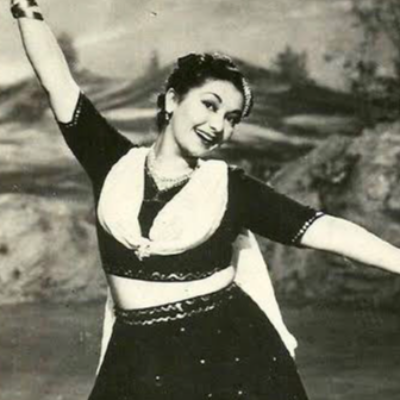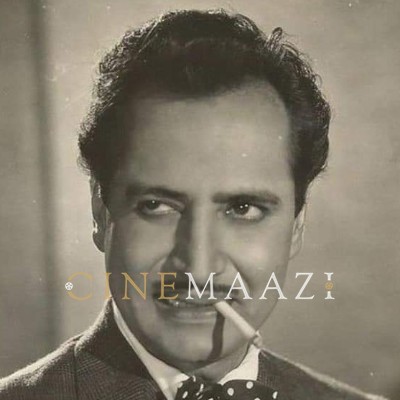This section is for paid subscribers only. Our subscription is only $3700/- for one full year.
You get unlimited access to all paid section and features on the website with this subscription.
Subscribe to read full article
This section is for paid subscribers only. Our subscription is only $37/- for one full year.
You get unlimited access to all paid section and features on the website with this subscription.
Not ready for a full subscription?
You can access this article for $2, and have it saved to your account for one year.
- Release Date1942
- GenreSocial
- FormatB-W
- LanguageHindi
- Shooting LocationPancholi's Lahore Studios
Twenty-eight years in prison, and now Akbar was released. He had paid to the full, for his crime born of folly. A good husband and a loving father as he was, he had yet surrendered to the call of the flesh, fallen a prey to the wily smiles of a gold-digger. The gold-digging, he had not worried about; but it had been more than his steady nature could bear, to be witness to her reckless faithlessness. He had called his revolver to his aid; a bullet had been his last messenger to that woman, and another to that other hapless creature of her wiles.
The result had been jail: twenty-eight years' penal servitude. He had gone through it all, in sad reflection and broken spirit. Those 28 years had bent his stalwart frame, had made his gallant face a bush of grey, matted hair. And thus it was that he crossed the thresh old of the prison. The clang of the iron gate behind him announced his re-entry into the free world.
Was it a free world for Akbar? He walked without a direction, like a man fearing a ghost at every turn. The ghost of his own past haunted him yet.
The man who enjoyed his greatest confidence was his old friend Ramsaran. To him, Akbar directed his steps. It was a great joy to find Ramsaran warmly welcoming his long-lost friend. Had he any news of Akbar's wife and only son?
He had, indeed. The wife had died. The son had had a hard task living down the ignominy of his father's crime. Then he had fought his way in the world. He was now a prosperous merchant and, in his turn a happy father.
The news of his son's prosperity gladdened Akbar's heart. And yet he was sad. There is no greater penalty for a man's fault or folly than to see his children suffer on its account. The least that Akbar could now do to atone for the suffering he had brought upon his son, was to put the lid on his own paternal heart and to stifle its urge to go and meet his son and grandson. For, doubtless, his appearance on the scene would only revive his son's embarrassment.
Akbar prepared to pay the price, a penalty harder to bear ' than the 28 years of hard labour that he had put behind him. All the same, he had to do something, some work to earn a living, some labour to keep his mind way from the tragedy of his own existence. Friend Ramsaran found him what he needed, a job as gardener to a rich merchant. It was hard work, and Akbar liked it the better for that. It was welcome work, for he found new objects for his affection, his employer's youthful son Anvar and his charming fiancee Zeenat. To his gratification and gratitude, he found his affection amply returned.
To that gay pair of lovers, Akbar was but a good-hearted old gardener. Had they known his identity and his past, would it have made a difference to them? Who can tell?
Akbar was happy. But that was not the kind of happiness that Fate had marked him for. He was heir to the fierce joy of love fulfilled through sacrifice. And he was soon to come by it.
That garden which he tended was a veritable Garden of Eden, of genuine happiness and artless joy. And therein crept an Evil One, in the person of Iqbal, a cousin of the young Anvar. This Iqbal, who covered a black heart with a bright smile, soon succeeded in weaning the simple-hearted Anvar from his true love to the by-paths of gaiety. Anvar was introduced to a coquettish dancing girl, an instrument of Iqbal's evil plans; and, sad to relate, Anvar fell for her.
It was with a wrenching heart that Akbar watched this new development-a re-enactment of the drama of his own life. Would the end of this drama, too, be the same as that of his own? That was the stupefying fear he lived in, for he had come to regard Anvar with a genuine love.
The inevitable development did take place. The last act did open with Anvar finding the dancing girl in a compromising position with Iqbal himself. It is notable that his reaction was the same as Akbar's had been in similar circumstances. He rushed to his house, and rushed out with a revolver. The keen eye of Akbar, watching him all the while, did not miss this movement. Akbar stoutly barred the way, and wrested the revolver from the enraged Anvar's hand. The scene he had himself perpetrated with a similar weapon, now rose before the mind's eye of the old man. He cast a glance at the revolver; and lo! it was his own! His own name as inscribed on it.
Would old Akbar, then, let young Anvar end his folly the same way as Akbar had ended his own? That was unthinkable. Resolutely, he took charge of the situation ; and, in this act of courage and sacrifice, he found the peace and joy he was looking for; the joy of righting the wrong he had done his own kith and kin, the peace that comes to the soul from the know ledge that the danger threatening our loved ones is past.
That is the thrilling climax of this story, old Akbar's restitution to his "Khan-Daan"
[From the official press booklet]

Cast
-
Noor Jehan
Zeenat -
Ghulam Mohammad
Amjad -
Manorama (Hindi)
Nargis -
Ajmal
Iqbal -
Durga Mota
Augustus -
Baby Akhtar
Najma -
Nafees
Mother -
Ibrahim
Akbar -
Pran
Anwar -
Channi
Nissar -
G N Butt
Ramsaran
Crew
-
BannerPancholi Art Pictures, Lahore
-
Director
-
Producer
-
Music Director
-
Story Writer
-
Screenplay
-
Cinematography
-
Editing
-
Sound Recording/ Audiography
-
Laboratory/ Processed atPancholi Art Pictures, Lahore
-
Art Direction












.jpg)



